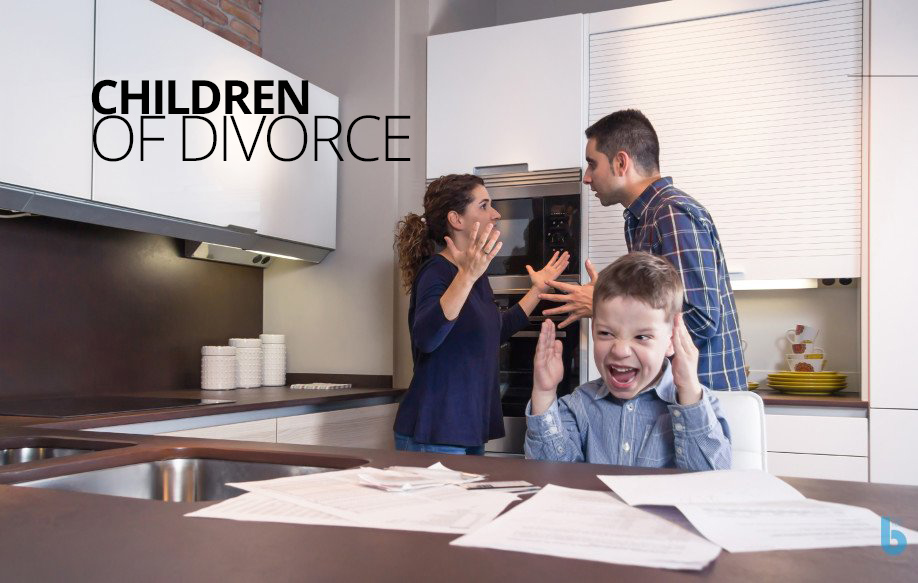Sometimes relationships end – that is unavoidable. Divorce is a terrible thing to go through for both members of a romantic couple, but the break-up gets so much more complicated when children are involved. Janet Murray offers some sage advice on how to put them at ease.
Perhaps one of the biggest reasons my clients give me for staying in an unhappy relationship is the fear of what a separation will do to their kids. So many of my clients watched their own parents separate as children and swore that they would never do that to their own kids. Many of them are absolutely heartbroken to discover that they can’t keep that promise.
The uncomfortable truth that has to be faced is that young children, though they may reassure their parents to the contrary, prefer their parents to stay together.
Until your children are grown up and are able to see you as people as well as parents, they’re always going to want you to either stay together or get back together. I’m not trying to guilt trip you into staying together for the sake of your children’s happiness; I’m just being honest about what a big deal this is for your kids. Chance are, you know deep down how desperately your children want for you to stay with your spouse, which is what makes facing it so hard. This may be why you sometimes bury your head in the sand about it.
The good news is that there is a lot you can do to make the separation process easier on your children. Even if your own parents didn’t handle it perfectly (who does?), it doesn’t mean it can’t be done. However, for now, I just wanted to share something positive with you:
The resilience and coping skills you teach your children during this time of transition will benefit them not just now, but for the rest of their lives.
You don’t need to be a therapist to help your children with stress. Perhaps the most important skill you can teach them during this time is that stress is something that can be managed. Imagine how different your life would have been had you learned stress management techniques as a child.
Some stress-busting techniques for children:
- Teach your children how to name their feelings and to indicate where in their body they feel them. Then have them imagine inhaling positive thoughts into those feelings/places and exhaling difficult or negative feelings.
- Consider making stress busting fun – perhaps by going to a children’s yoga class together.
- Suggest to them that stress is just stuck energy and that going for a run, talking it out, writing it out, having a cry, or getting a hug can be enough to unstick it.
- Allow them to talk about their fears – don’t make any subject off limits – never tell them that their fears are silly.
- Teach them about the power of their emotions and why every emotion is important, even anger or sadness. Don’t make any emotion bad.
- Teach them the difference between fantasy and reality. It is important that children are frequently reminded that the separation is in no way their fault.
- Encourage them to use their creativity to express how they feel about the impending separation – often children can paint, draw or use puppets to express their anxieties with a clarity that is breathtaking, even if they don’t have the language to talk about it yet.
- Show them how to write down what they are worried about, and encourage them to think through several different ways that they might deal with those worries. Nurturing their problem-solving abilities leads to resilience and confidence as they learn to deal with life’s problems. It also can help them deal with the feelings of powerlessness that can really sap their joie-de-vivre.
You are their best stress-management role model. Show them that you use these techniques – breath observance, going for a walk, yoga or a workout, journaling, writing letters that you don’t post, talking to other adults about your difficult feelings, nurturing yourself with good food and plenty of rest, taking time out, recognising when you’re too strung out to make a good decision about anything. If you’re just sitting there with a bottle of wine, or sitting in front of the TV comfort eating, what are you teaching them?
Your children may not know the word ‘stressed’, but they will be able to see that you’re having a tough time. This may mean that they will therefore try to protect you from their difficult feelings. If they seem to be coping suspiciously well, it might be worth asking another trusted adult or family member to talk to them and see if they can give them some support.
Alternatively, they may become extra difficult and demanding, and you may feel like you’re under attack from every direction. Remember to make sure that you are getting the support you need from yourself and from others so that you don’t lose it with your children. They want to be sure that you’re still their rock and so may bring out the heavy artillery to check that. Be prepared.
Your separation can seem like the end of the world for your children. However, in helping them to survive this and giving them tools to manage stress and solve their problems, you will help to build their confidence that you are someone they can continue to trust and respect. Right now, I get that that this may not feel like much of a silver lining, but these are skills and qualities that they will rely on for a lifetime.
Order Janet Murray’s eBook, Essential Divorce Wisdom.




